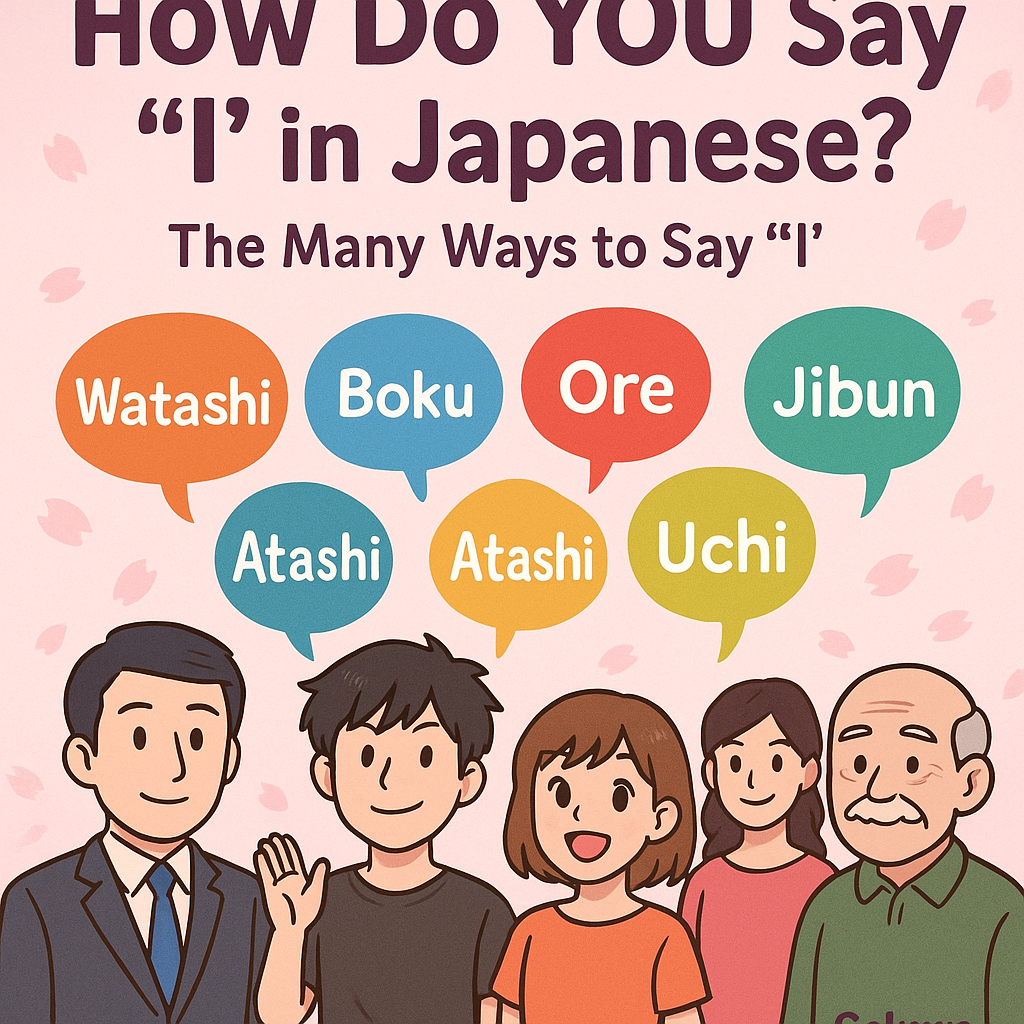
Quick Answer: Use “Watashi” If Unsure!
If you’re learning Japanese and wonder how to say “I,” the safest choice is watashi(私/わたし).
It’s polite, neutral, and works in almost all situations, regardless of gender or age.
初心者が迷ったときは「私(わたし)」が無難です。性別・年齢問わず使えて丁寧な印象になります。
Why So Many Ways to Say “I”?
Japanese is unique because there are many words for “I,” each showing something about your gender, formality, and relationship with the listener. In English, “I” is always the same—but in Japanese, your choice matters!
日本語の一人称は、話し手の性別・立場・親しさ・状況によって使い分けられます。その微妙な違いがコミュニケーションのカギです。
Most Common Ways to Say “I” in Japanese
- Watashi(私・わたし) Polite and neutral. Suitable for any gender. Use this in most situations, especially formal ones.
- Boku(僕・ぼく) Casual, soft, friendly. Used mostly by boys/men, but some girls use it too. Avoid in very formal settings.
- Ore(俺・おれ) Very casual, masculine, strong. Men use it with friends or in informal groups. Don’t use with your boss or strangers!
- Atashi(あたし) Casual, mainly for women. Used among friends or in relaxed settings.
- Uchi(うち) Popular with young women, especially in Kansai (Osaka/Kyoto). Friendly, casual.
- Jibun(自分) Literally “oneself.” Used in some regions and sports teams, and can sound unique or sporty.
- Watakushi(わたくし) Extremely formal, used in ceremonies or speeches.
How to Choose: A Simple Guide
Ask yourself:
- Is it a formal situation? Use “watashi.”
- Are you a man talking with friends? “Ore” or “boku.”
- Are you a young woman in Kansai? “Uchi.”
- Not sure? Just use “watashi.”
Example Sentences
- Watashi wa gakusei desu.(私は学生です。) I am a student.
- Boku mo iku!(ぼくも行く!) I’ll go too! (casual, male)
- Ore wa yasashii yo.(オレは優しいよ。) I’m kind! (male, very casual)
- Atashi ne, kinou eiga mita.(あたしね、昨日映画見た。) You know, I watched a movie yesterday. (casual, female)
- Watakushi wa…(わたくしは…) I… (extremely formal)
What NOT to Do!
- Don’t use “ore” at work or in class—too rough.
- Don’t use “atashi” if you want to sound formal.
- Don’t use “boku” if you are an adult woman in a business meeting.
- If you’re not sure, stick with “watashi.”
FAQ
Q. Can women use “boku” or “ore”?
Sometimes, but it’s rare and gives a “boyish” or very unique impression. In anime, you might see a “boku-girl” character, but it’s not common in daily life.
Q. Which one do kids use?
Boys: “boku” or “ore” (casual). Girls: “watashi,” “atashi,” or “uchi.”
Summary
- Japanese has many words for “I.”
- If unsure, use “watashi.”
- Match the word to your gender, age, situation, and how close you are to the listener.
- Watch and listen to how Japanese people around you speak!